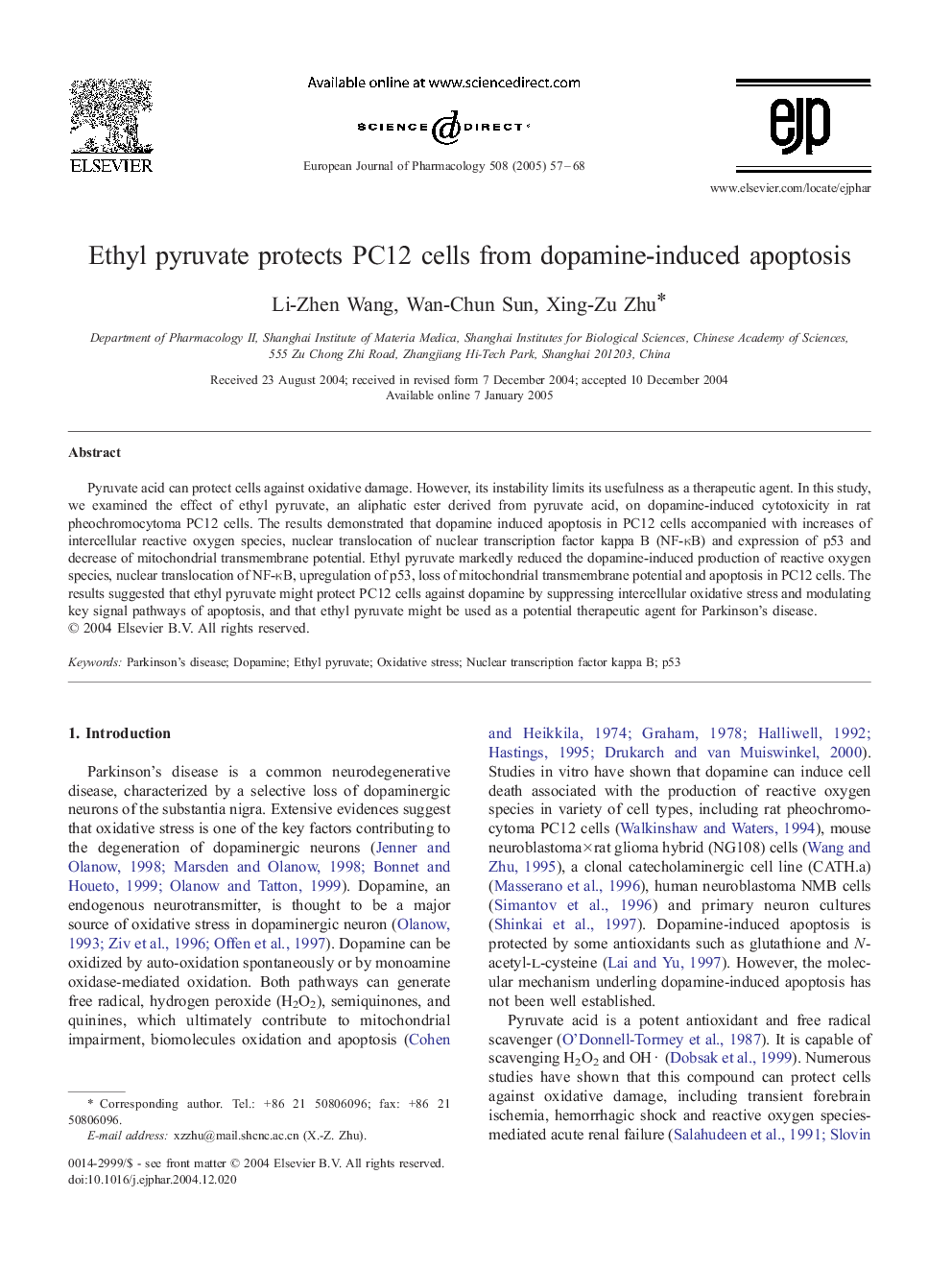| Article ID | Journal | Published Year | Pages | File Type |
|---|---|---|---|---|
| 9921520 | European Journal of Pharmacology | 2005 | 12 Pages |
Abstract
Pyruvate acid can protect cells against oxidative damage. However, its instability limits its usefulness as a therapeutic agent. In this study, we examined the effect of ethyl pyruvate, an aliphatic ester derived from pyruvate acid, on dopamine-induced cytotoxicity in rat pheochromocytoma PC12 cells. The results demonstrated that dopamine induced apoptosis in PC12 cells accompanied with increases of intercellular reactive oxygen species, nuclear translocation of nuclear transcription factor kappa B (NF-κB) and expression of p53 and decrease of mitochondrial transmembrane potential. Ethyl pyruvate markedly reduced the dopamine-induced production of reactive oxygen species, nuclear translocation of NF-κB, upregulation of p53, loss of mitochondrial transmembrane potential and apoptosis in PC12 cells. The results suggested that ethyl pyruvate might protect PC12 cells against dopamine by suppressing intercellular oxidative stress and modulating key signal pathways of apoptosis, and that ethyl pyruvate might be used as a potential therapeutic agent for Parkinson's disease.
Keywords
Related Topics
Life Sciences
Neuroscience
Cellular and Molecular Neuroscience
Authors
Li-Zhen Wang, Wan-Chun Sun, Xing-Zu Zhu,
